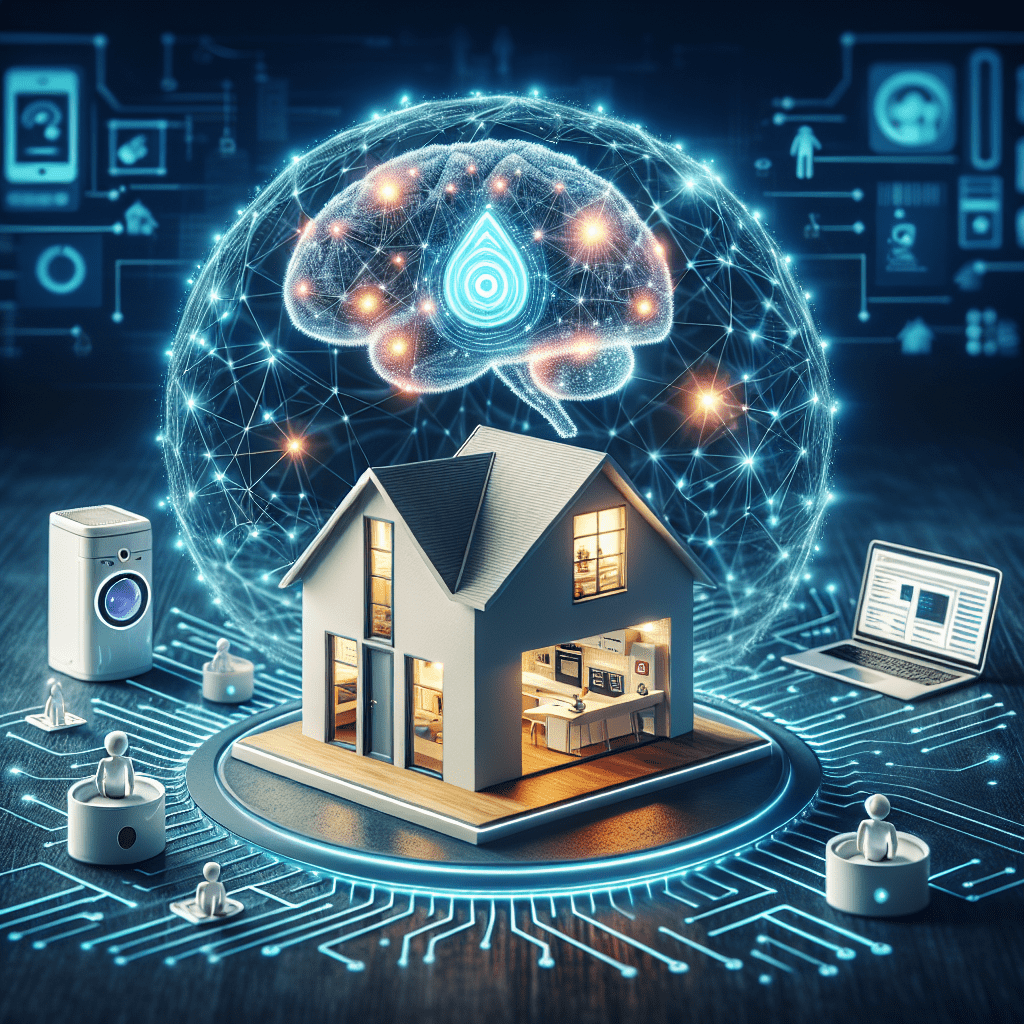In recent years, the rapid advancements in technology have revolutionized the way we live our lives. One of the most significant developments is the rise of smart homes powered by artificial intelligence (AI). AI is transforming our homes into intelligent living spaces that are not only convenient but also energy-efficient and secure. In this article, we will explore how AI is changing the way we live in smart homes.
The Rise of Smart Homes
Smart homes are equipped with devices and systems that can be controlled remotely and automated to perform tasks without human intervention. These devices are connected to the internet and can communicate with each other to create a seamless and efficient living environment.
AI plays a crucial role in smart homes by analyzing data from sensors and devices to learn and adapt to the preferences and habits of the residents. This enables AI to automate routine tasks, anticipate the needs of the users, and optimize energy consumption.
AI-Powered Smart Home Devices
There are various AI-powered devices available for smart homes that enhance comfort, convenience, and security. Some of the most popular AI-powered smart home devices include:
- Smart thermostats that learn the temperature preferences of the residents and adjust the heating and cooling systems accordingly to save energy.
- Voice-activated virtual assistants like Amazon Alexa and Google Assistant that can control smart home devices, provide information, and perform tasks through voice commands.
- Smart cameras and doorbells that use facial recognition technology to identify residents, visitors, and intruders, and send alerts to the homeowners’ smartphones.
- Smart lighting systems that adjust the brightness and color of the lights based on the time of day, the residents’ activities, and the natural light levels in the room.
Benefits of AI in Smart Homes
The integration of AI in smart homes offers a wide range of benefits to the residents:
- Convenience: AI automates routine tasks like adjusting the temperature, turning on the lights, and locking the doors, saving time and effort for the residents.
- Efficiency: AI optimizes energy consumption by analyzing the residents’ habits and preferences to control heating, cooling, and lighting systems efficiently.
- Security: AI-powered devices enhance Home Security by monitoring for unusual activities, detecting intruders, and sending alerts to the homeowners.
- Personalization: AI learns the habits and preferences of the residents to personalize the living environment and provide customized recommendations.
Challenges of AI in Smart Homes
While AI offers numerous benefits to smart homes, there are also challenges that need to be addressed:
- Privacy concerns: AI-powered devices collect and analyze data from the residents, raising concerns about data privacy and security.
- Reliability: AI systems may encounter errors or malfunctions, leading to unexpected behaviors and disruptions in the living environment.
- Integration: AI devices from different manufacturers may not be compatible with each other, making it difficult to create a unified smart home ecosystem.
- Cost: The cost of AI-powered devices and systems may be prohibitive for some homeowners, limiting the adoption of smart home technology.
Conclusion
Artificial intelligence is revolutionizing the way we live in smart homes by providing convenience, efficiency, security, and personalization. While there are challenges that need to be addressed, the benefits of AI in smart homes far outweigh the drawbacks. As technology continues to advance, we can expect AI to play an even bigger role in shaping the future of smart living.
FAQs
Q: Are smart homes secure from hacking?
A: Smart homes are susceptible to hacking like any other connected devices. It is essential to secure your smart home network with strong passwords, enable two-factor authentication, and keep your devices and software up to date to prevent security breaches.
Q: Can AI-powered devices be controlled remotely?
A: Yes, AI-powered devices in smart homes can be controlled remotely through a smartphone app or voice commands. This allows users to monitor and interact with their smart home devices from anywhere in the world.
Q: Do smart home devices consume a lot of energy?
A: Smart home devices are designed to be energy-efficient by optimizing their operations based on the users’ habits and preferences. In most cases, smart home devices help reduce energy consumption and utility costs.
TIP:
When setting up your smart home, make sure to research and choose compatible AI-powered devices from reputable manufacturers to ensure seamless integration and optimal performance.
#Smart #Homes #Smarter #Artificial #Intelligence #Changing #Live
